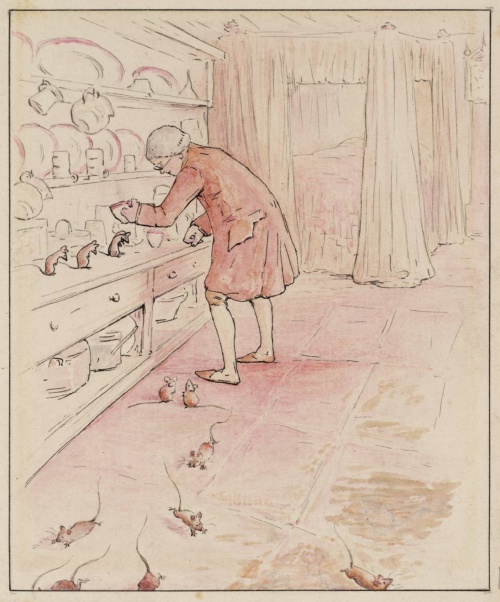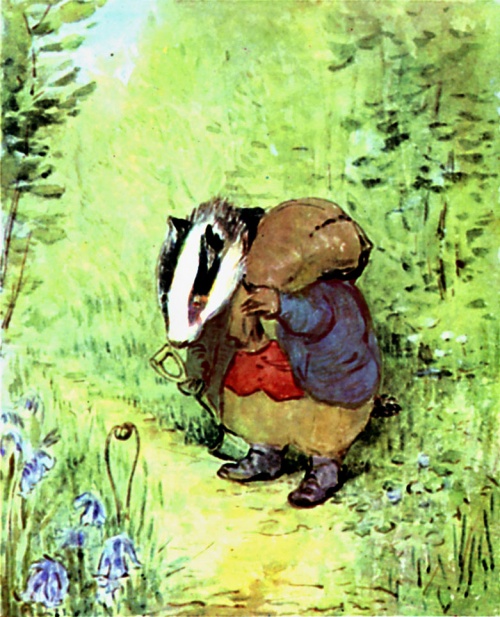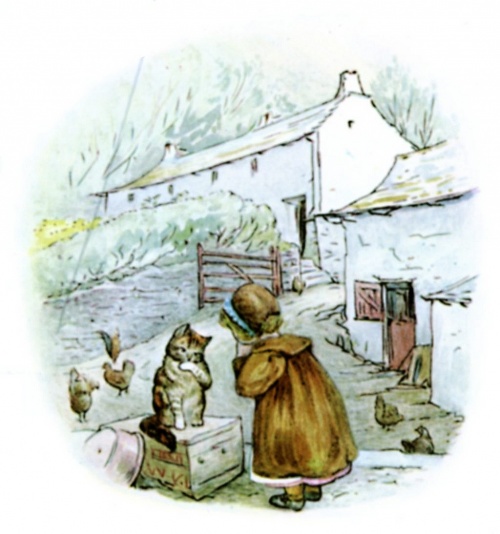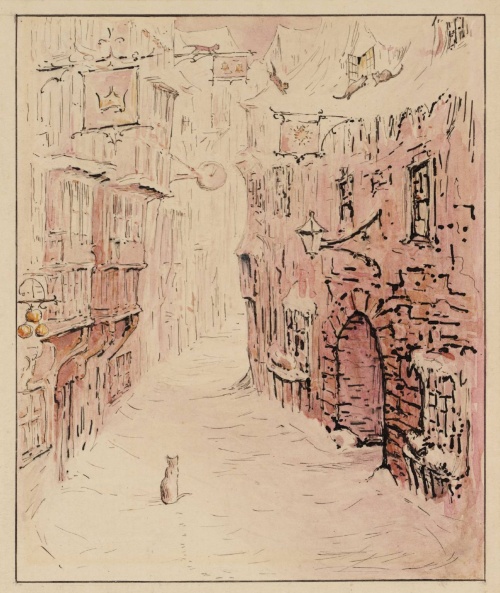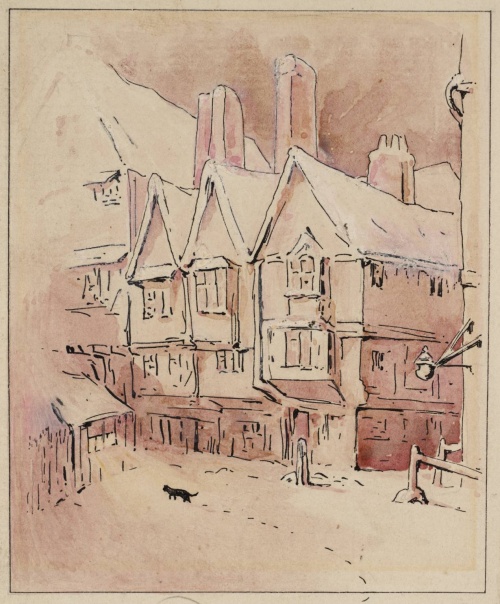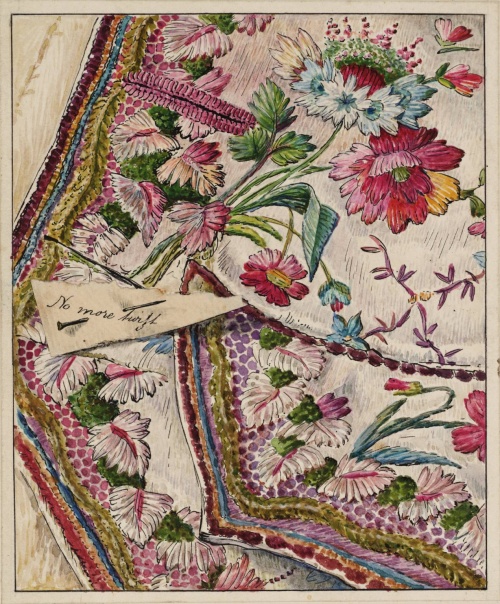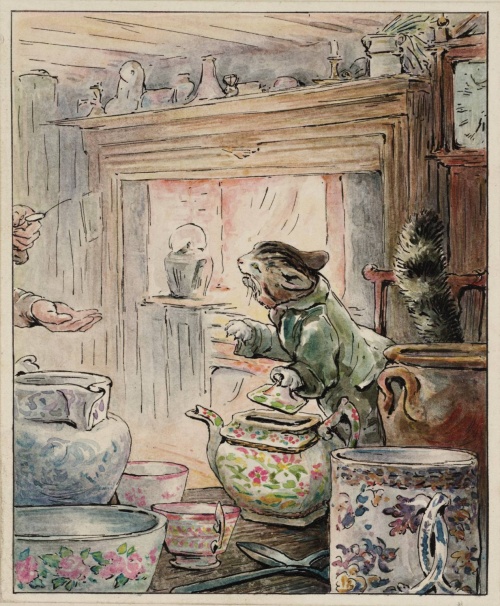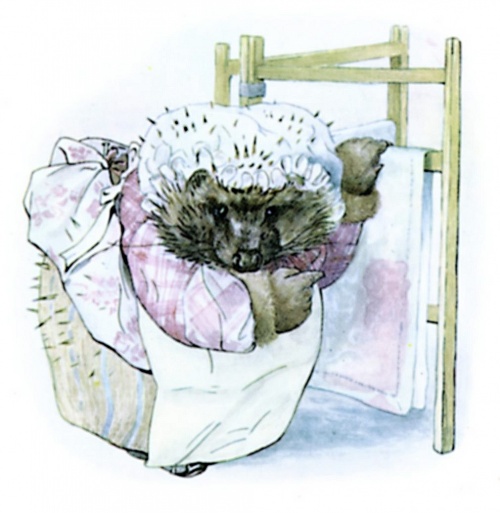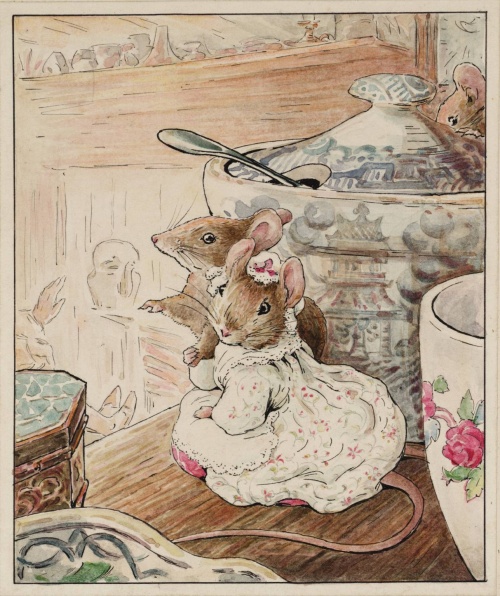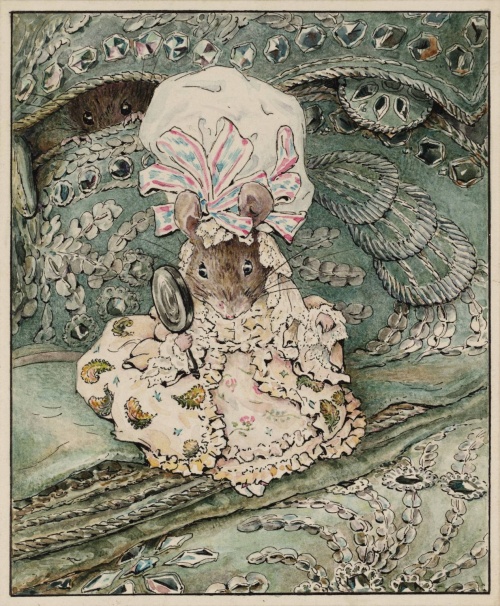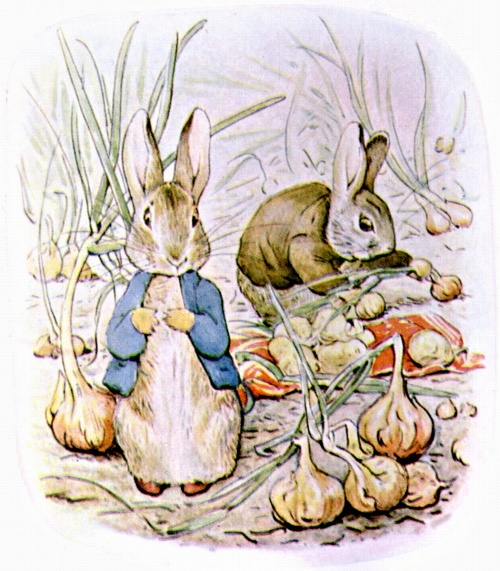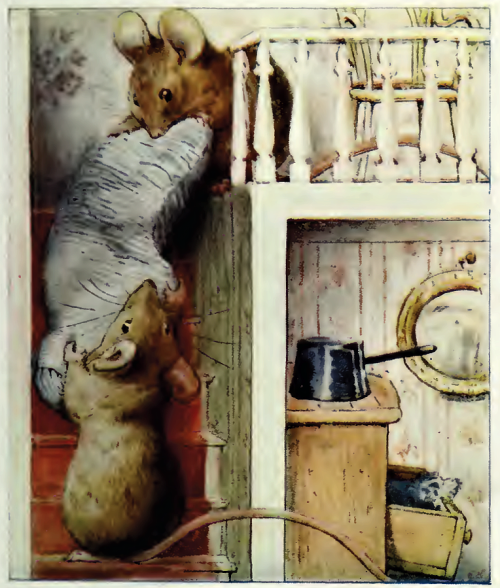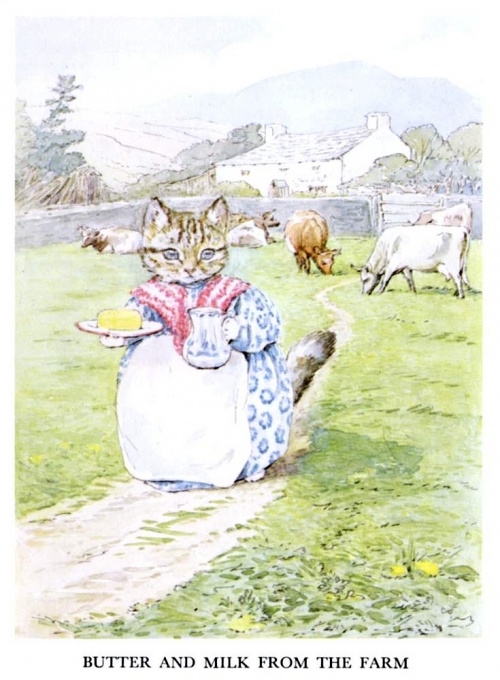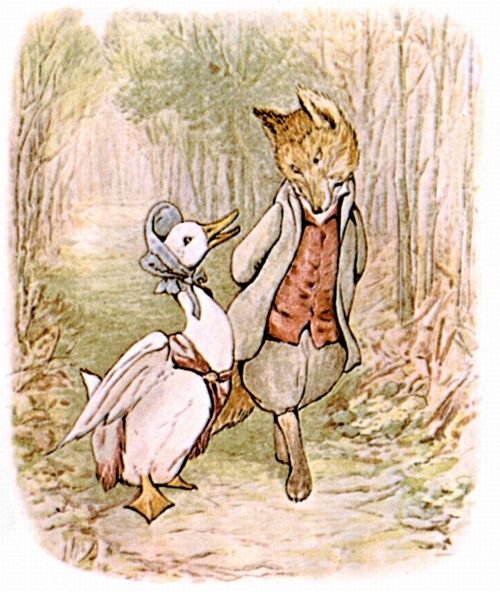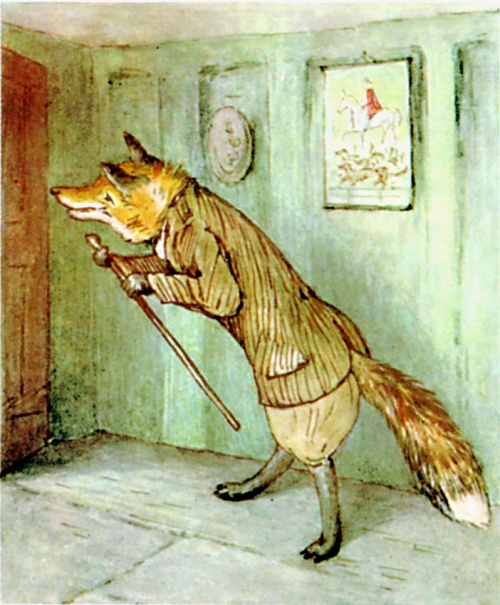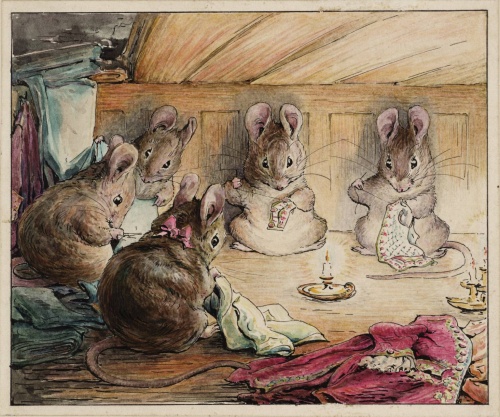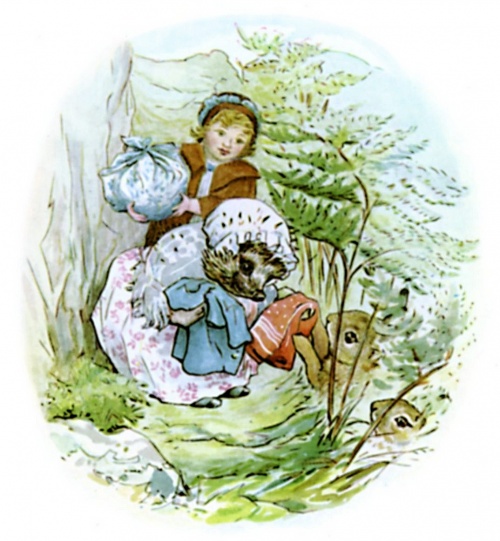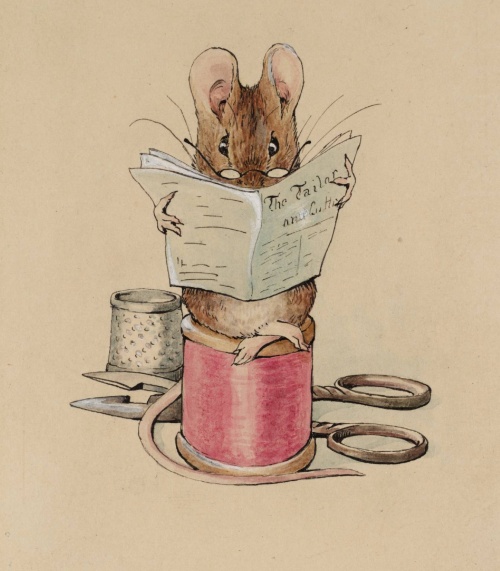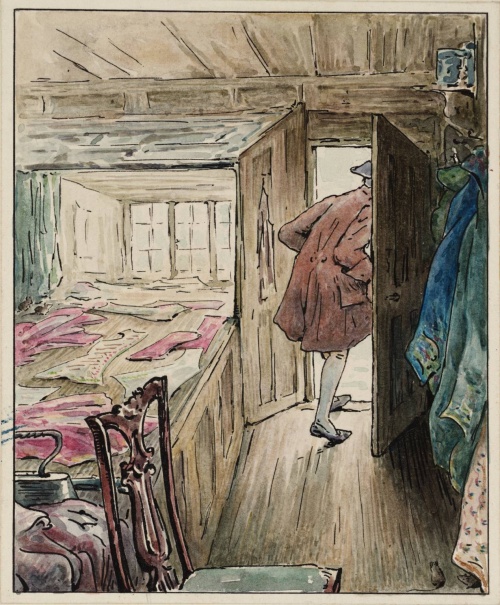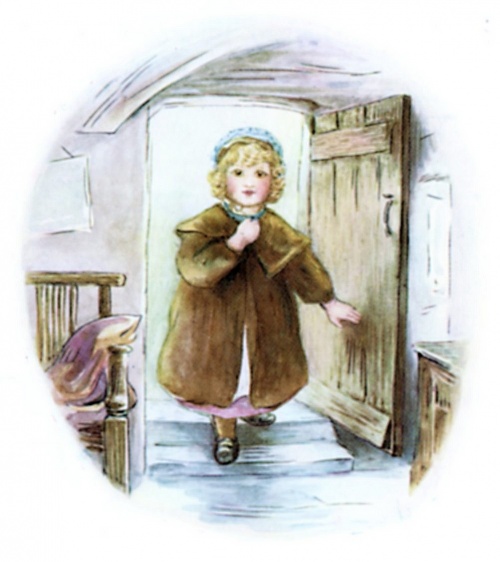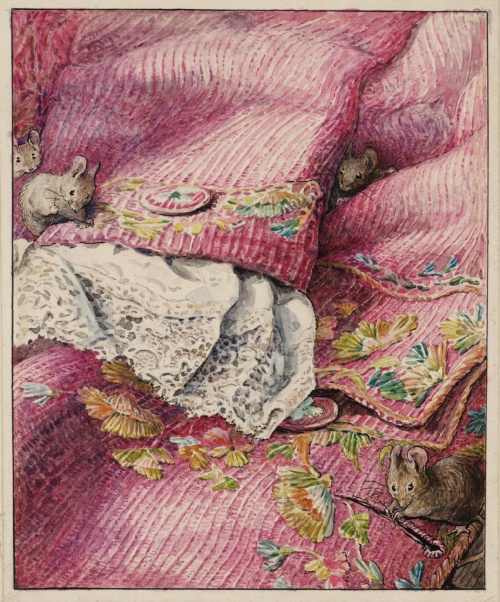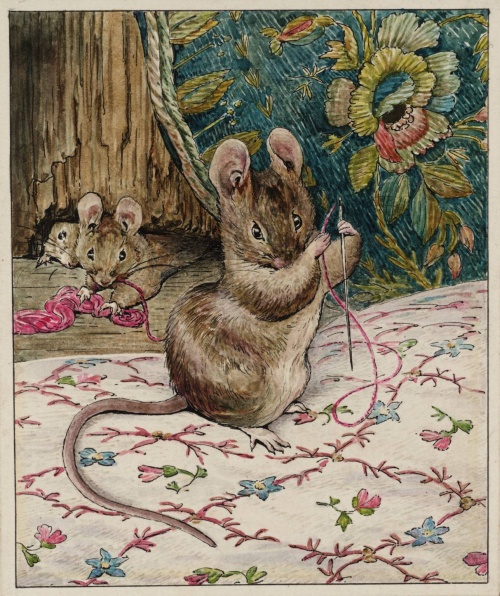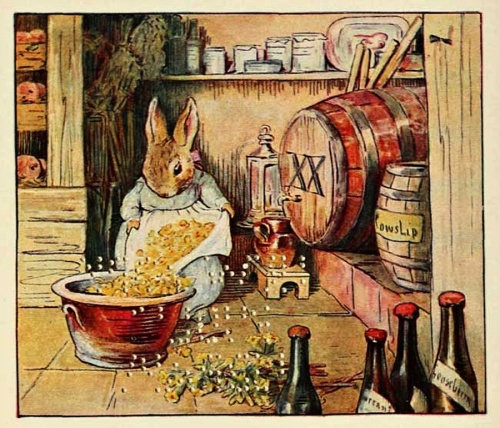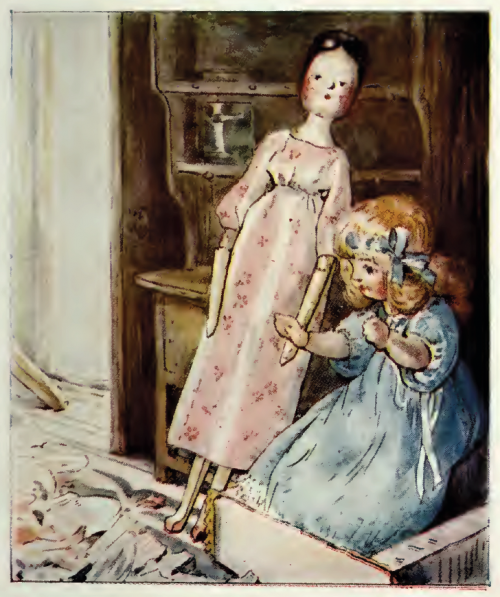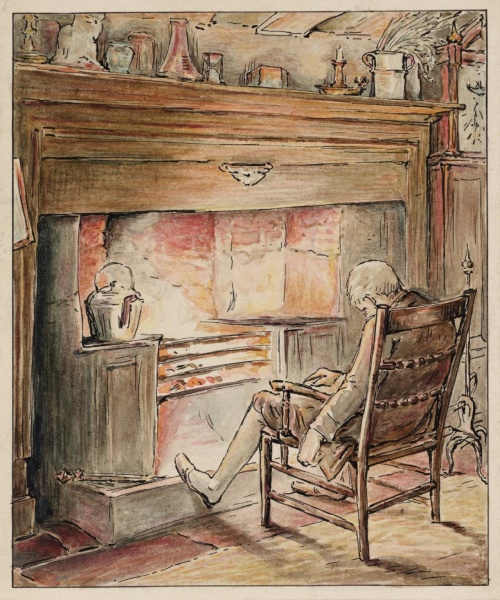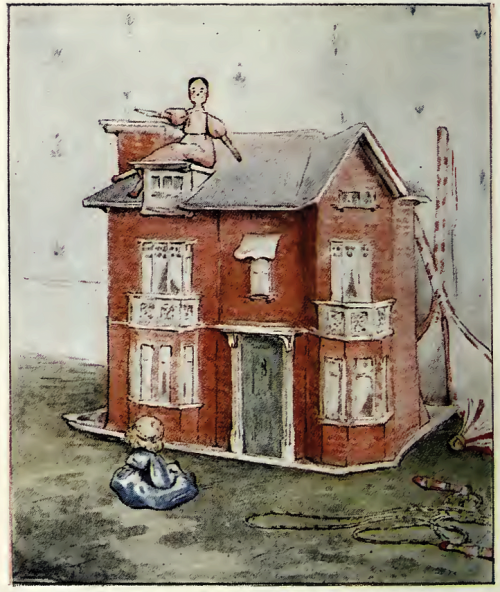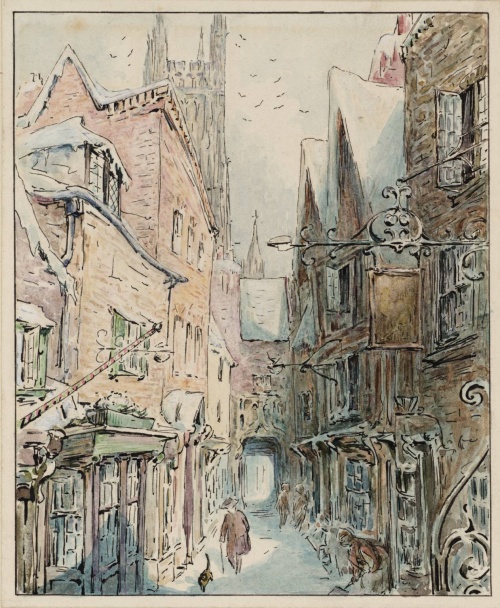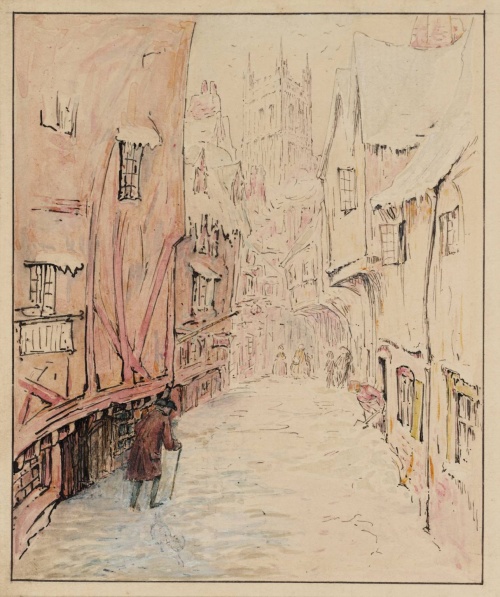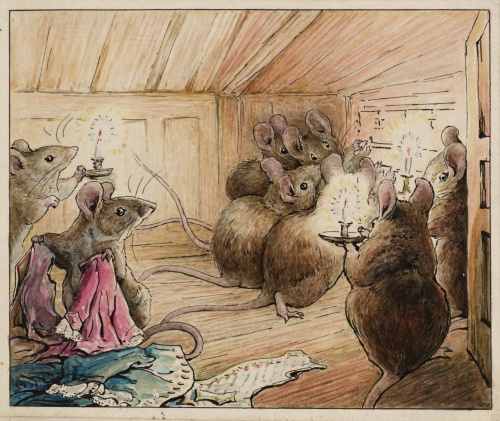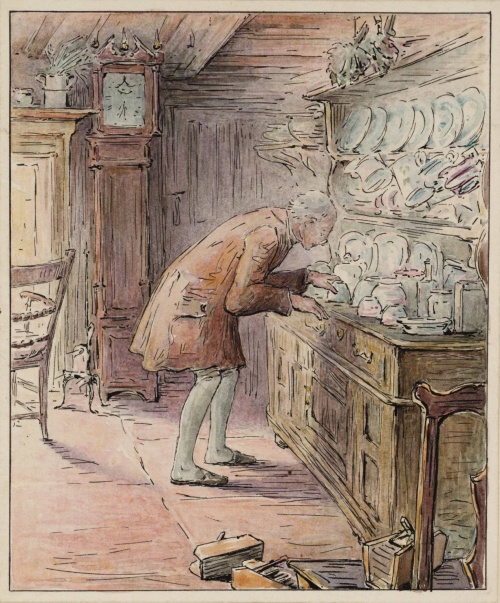The magical world of Helen Beatrix Potter (885 works)
Разрешение картинок от 145x121px до 1344x1536px
A collection of works by writer and artist Helen Beatrix Potter.
Helen Beatrix Potter was born on July 28, 1866 at 2 Bolton Gardens, Kensington, London into a wealthy family. Beatrix's parents lived on an inheritance from the cotton trade. Although Beatrix's father, Rupert, qualified as a lawyer, he devoted most of his time to his passion for art and photography. He and his wife Helen enjoyed an active social life among writers, artists and political activists. Beatrix had a closed and lonely childhood, typical of daughters born into bourgeois families of the Victorian era. She rarely spent time with her mother and father and, being home-schooled by governesses, had little opportunity to meet other children. Beatrix's nanny, Miss MacKenzie, was from Scotland. Beatrix once said of her: "She had a strong belief in witches, fairies and the terrible John Calvin." Her father took Beatrix with him on trips to the South Kensington Museum (V&A), the Natural History Museum and the Royal Academy, and also visited his famous friends, including the Pre-Raphaelite painter Sir John Everett Millais. Beatrix's brother, Bertram, was born six years after his sister and was her close friend. Potter was especially close to her father, and it was he who first recognized her artistic talent. At the age of eight, Beatrix filled several homemade albums with drawings of animals and plants. So Beatrix spent most of her youth, independently studying painting and drawing sketches. Another outlet for her creativity was a diary, in which she used a miniature secret code to record daily thoughts and observations (a habit that continued into her 30s). After her death, the code remained a secret until Leslie Linder deciphered it in 1958.
Although she received an Artist's Certificate in Drawing from the Arts Department, Beatrix had little real education at the age of 21. Like most adult daughters of wealthy people, she was appointed "household leader," a role that left her plenty of time to indulge her interest in the natural sciences. In her 20s, Beatrix has developed into a talented naturalist. She studied plants and animals in the Cromwell Road museums, and learned to draw using a microscope. If she had been born half a century later, we might have known her as a mycologist - an expert on mushrooms. In 1901, after the idea was rejected by six publishers, Beatrix defiantly published her own edition of the rabbit story. After seeing the copy, the publishing firm Frederick Warne & Co. decided to publish Peter Rabbit. The company was run by Frederick Warne's three sons Harold, Fruen, and Norman. The work of printing the book was entrusted to the youngest of the brothers, Norman Warne. He became editor of Potter. In 1902, The Tale of Peter Rabbit was published and six more issues had to be published within a year to meet demand. By Christmas 20,000 copies had been sold. Also, in 1903, the hero Peter Rabbit was patented and released as a soft toy. This success marked the beginning of a lifelong relationship between Beatrix and Warne. It also led to friendship and then love between Beatrix and Norman Warne. Norman later introduces her to his family. The youngest of six children, Norman lived with his widowed mother and unmarried sister Millie at the Warnes' home in Bedford Square. Millie immediately liked Beatrix, since she spent most of her life without friends.
Contrary to her parents, who believed that, as a "shopkeeper", the publisher was an unsuitable match for their daughter - Beatrix accepted the offer. They found a compromise: the parents gave permission for the engagement, but the happy couple could not tell anyone except their immediate family about it. But unexpectedly, Norman died less than a month later from blood cancer. Beatrix was in Wales when she received the news. Back in London, Beatrix tried to ease her grief by spending time with Norman's sister Millie, talking about the man they loved. Together they visited his grave in Highgate Cemetery. Beatrix was devastated but nevertheless planned for the future and bought Hill Top Farm in the Lake District village of Soray less than a year after Norman's death. After his death, she wrote in a letter to his sister Millie: “He did not live long, but he lived a successful, happy life. I should try to start a new life next year." Although she could not live there full time while caring for her parents in London, she remained there as long as possible and began to study farm management. She also continued to write, publishing one or two new "little books" each year for the next eight years. Deteriorating eyesight, especially from 1920, meant that she drew less and less, and increasingly her books were compiled from sketches and drawings completed years earlier. Her last major work, The Tale of Pig Robinson, was published in 1930.
Besides agriculture, Be's main passionAtrix's last years were in conservation, an interest inspired by her friendship with Vicar Hardwicke Rawnsley, one of the founders of the National Trust. Her property expansion, financed by income from book sales, has given her the opportunity to preserve not only part of the unique Lake District landscape, but also traditional farming methods. During the Second World War, Beatrix was worried whether her beloved Lake District would fall into German hands. However, she had a different reaction when Bolton Gardens - Beatrix's "unloved home" - was hit directly by a German bomb. At age 77, Beatrix developed a severe form of bronchitis. And on December 22, 1943 she died. All copyrights to her books and drawings passed to her publisher, F. Warne & Co. In all, Beatrix wrote 23 "little books" that remain extremely popular today. Translated into many languages, its characters - especially Peter Rabbit - are still loved by children.
